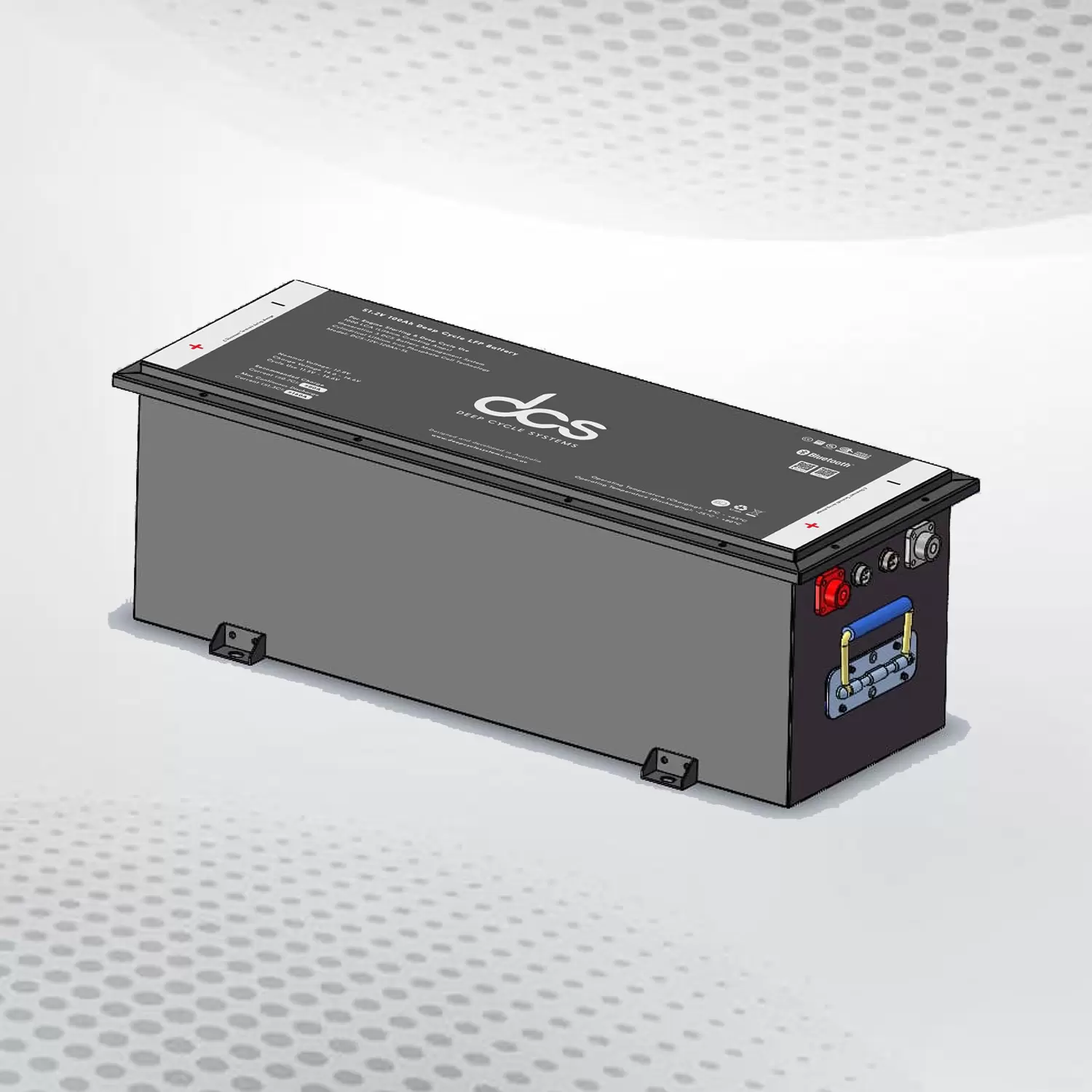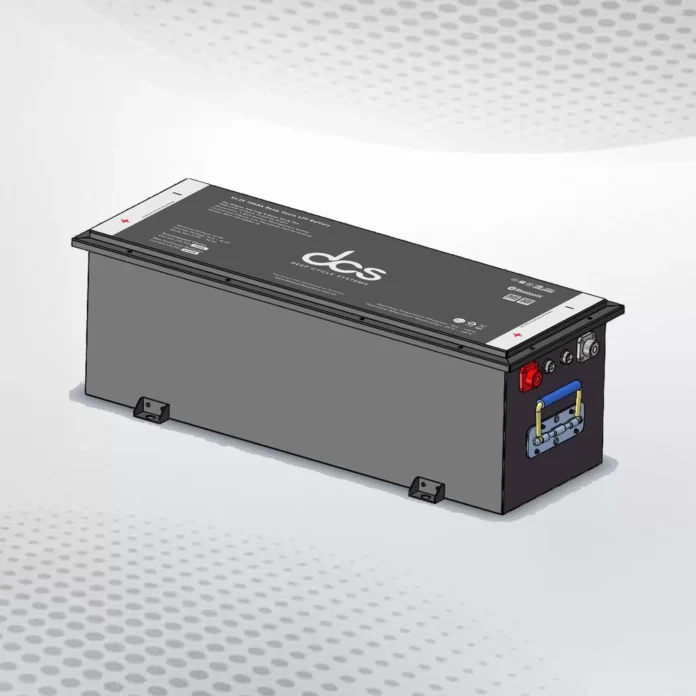Lithium batteries have become the go-to choice for energy storage solutions due to their high energy density, lightweight design, and long cycle life. Among the various lithium battery systems available, the 48v lithium battery system stands out for its efficiency and power. In this blog post, we will explore the basics of lithium battery technology, the advantages of 48-volt lithium battery systems, their applications, innovations in 48V battery management, and much more.
Understanding the Basics of Lithium Battery Technology
Lithium battery technology leverages the unique properties of lithium, a light metal with the highest electrochemical potential among metals. This characteristic is central to its ability to store and release significant amounts of energy, contributing to the battery’s high energy density. Unlike traditional batteries, which may use lead-acid or nickel-cadmium, lithium batteries utilize lithium ions that move between the anode and cathode during charging and discharging. This movement is facilitated by an electrolyte, a conductive chemical medium that enables the flow of ions while preventing the direct flow of electrons, thus creating a circuit.
The structure of lithium batteries allows for various configurations and chemistries, including lithium-ion, lithium polymer, and lithium iron phosphate, each offering distinct benefits in terms of power, safety, and longevity. The efficiency of these batteries is further enhanced by their low self-discharge rate, meaning they lose charge at a slower pace when not in use compared to other battery types. This characteristic, combined with their ability to sustain a stable voltage output until fully depleted, positions lithium batteries as a cornerstone for modern portable electronics, electric vehicles, and renewable energy storage solutions. Their adaptability and performance metrics make understanding their underlying technology essential for leveraging their full potential in diverse applications.
The Advantages of 48-V Lithium Battery Systems
The 48-volt lithium battery systems present a leap forward in energy storage technology, offering significant benefits over conventional alternatives. One of the most prominent advantages is their superior energy density, which allows these batteries to store more energy in a smaller footprint. This makes them particularly well-suited for applications where space is at a premium, such as electric vehicles and portable power solutions.
In addition to their compact size, 48-v lithium battery systems charge notably faster than their lead-acid counterparts. This rapid charging capability enhances convenience and increases the operational efficiency of devices and vehicles powered by these batteries.
Another key benefit of 48-volt lithium battery systems is their lightweight nature. By reducing the overall weight of the battery pack, these systems contribute to improved performance and energy efficiency, especially in mobility applications. This weight advantage, coupled with the system’s higher voltage, enables more effective power delivery, directly translating into better acceleration for electric vehicles and more robust power output for stationary applications.
Furthermore, these battery systems boast an impressive cycle life, significantly outperforming traditional batteries. This longevity ensures reliable performance over an extended period, reducing the need for frequent replacements and lowering the total ownership cost.
With these advantages, 48-volt lithium battery systems are elevating the standards for energy storage solutions and setting the stage for more sustainable and efficient power management across a myriad of applications.88
Applications of 48-V Lithium Battery Systems
48-volt lithium battery systems have carved a niche for themselves across various sectors, demonstrating various applications beyond the typical use in electric vehicles and renewable energy storage. These systems are increasingly finding their way into residential energy solutions, offering homeowners efficient and reliable options for storing solar energy generated during the day for use at night, thus maximizing the use of renewable resources and reducing reliance on the grid.
In the realm of mobility, besides electric vehicles, 48-v lithium battery systems are integral in powering electric bikes and scooters, providing a boost in performance and range while maintaining a lightweight design. This application promotes an eco-friendly mode of transportation and enhances the accessibility of electric mobility options for a broader audience.
Commercial and industrial sectors also benefit from adopting 48-volt lithium battery systems. These batteries are a backbone for uninterruptible power supplies (UPS), safeguarding critical systems against power fluctuations and outages. This reliability is crucial in hospitals, data centers, and manufacturing facilities, where power stability is paramount.
Innovative applications are continually emerging, with these battery systems being employed in smart agriculture for powering sensors and automated equipment, maritime applications for electric propulsion systems, and remote communication systems as dependable power sources. The versatility and efficiency of 48-volt lithium battery systems underscore their pivotal role in transitioning towards more sustainable and intelligent energy solutions across diverse industries.
Battery Lithium 48v
The battery lithium 48v represents a significant milestone in the evolution of battery technology, marking a shift towards more efficient and powerful energy storage solutions. This voltage level has been identified as an optimal balance between energy capacity and safety, making it an ideal choice for various applications. By harnessing the advantages of lithium’s lightweight and high-energy-density characteristics, 48V systems provide a versatile and robust power source that can be scaled for both small and large-scale uses.
From enhancing the performance of electric vehicles to providing reliable power for renewable energy installations, the adoption of 48V lithium batteries indicates a broader move towards cleaner, more sustainable energy practices. The technology’s ability to deliver consistent power output while maintaining a compact form factor further underscores its suitability for today’s energy demands. As the industry continues to innovate, the role of 48V lithium batteries in advancing energy storage and management solutions remains pivotal, driving efficiency and sustainability across various sectors.
Innovations in 48v Battery Management
The evolution of 48V battery management systems (BMS) represents a pivotal advancement in optimizing the performance and safety of lithium battery technology. Innovations in this area are crucial, as they address the intricate balance between maximizing battery life, enhancing efficiency, and ensuring operational safety in real time. Modern 48V BMS are equipped with sophisticated algorithms capable of conducting precise cell monitoring and balancing. This ensures that each cell within the battery pack operates within its optimal range and significantly mitigates the risk of overcharging and deep discharge – two common issues that can adversely affect battery longevity and performance.
Furthermore, cutting-edge BMS incorporate advanced temperature management features. By actively regulating the temperature of the battery pack, these systems prevent overheating, a critical factor in maintaining the integrity and safety of the battery. Integrating IoT (Internet of Things) technology into BMS has opened new horizons for remote monitoring and diagnostics, allowing for real-time data analysis and predictive maintenance. This connectivity streamlines the management of 48-v lithium battery systems and enhances the reliability and efficiency of the applications they power. Through these innovations, 48V battery management systems are setting new standards in optimizing lithium battery performance, heralding a future of safer, more efficient, and longer-lasting energy storage solutions.
48v Battery Lifepo4
Exploring the specific category of 48v Battery Lifepo4 reveals an intriguing subset of lithium technology prized for its exceptional stability and safety profile. Lithium Iron Phosphate (LiFePO4) batteries represent a leap toward robust energy solutions where safety and longevity are paramount. Unlike other lithium-ion chemistries, LiFePO4 batteries offer a lower risk of thermal runaway and are inherently more stable under high temperatures or in the event of a short circuit. This makes them an ideal choice for applications that demand high safety, such as in residential energy storage systems or vehicles where passenger safety is a critical concern.
Additionally, the LiFePO4 chemistry provides a slightly lower energy density. Still, it compensates with a longer lifespan and better cycle stability. It is beneficial for applications requiring a durable power source that can withstand numerous charge and discharge cycles without significant degradation. Adapting the 48v configuration amplifies these inherent advantages, marrying the safety and longevity of LiFePO4 technology with the efficiency and power delivery needed for high-demand applications. This synergy establishes the 48-v Battery Lifepo4 as a cornerstone in the quest for reliable, safe, and enduring energy storage solutions.
Efficient 48v Battery Management Systems
Efficient 48V Battery Management Systems (BMS) are the linchpin in ensuring that 48-v lithium battery systems operate at their peak, combining durability with high performance. These advanced BMS optimize energy flow and distribution, which is critical for extending the battery’s lifespan while maintaining consistent power output. They intelligently monitor and adjust the charge state of each cell, ensuring uniformity and preventing imbalances that could lead to inefficiencies or damage.
Furthermore, state-of-the-art BMS incorporate fault detection mechanisms that instantly identify and mitigate issues such as short circuits or abnormal voltage fluctuations, safeguarding the battery system against potential failures. The integration of cloud connectivity offers the advantage of remote management, allowing users to monitor system performance and make adjustments as necessary, ensuring that the battery operates within its ideal parameters. This management level is pivotal for applications requiring high reliability and efficiency, from electric vehicles to stationary energy storage, making efficient 48V BMS a critical component in the broader adoption and optimization of lithium battery technology.
FAQs
What is the typical capacity of a 48-v lithium battery?
The capacity of a 48-volt lithium battery can vary depending on its size and intended application. However, typical capacities range from around 50 amp-hours (Ah) to several hundred Ah, providing ample power for various devices and systems.
How long does it take to charge a 48-v lithium battery?
Charging time for a 48-volt lithium battery depends on several factors, including the charger’s output capacity, current charge level, and capacity. Generally, lithium batteries can be charged relatively quickly compared to other chemistries, with charging times ranging from a few hours to overnight.
What are the advantages of using a 48-v lithium battery over other battery types?
48-volt lithium batteries offer numerous advantages, including higher energy density, longer cycle life, lighter weight, and faster charging times than lead-acid batteries.
Conclusion
In conclusion, the journey of 48-volt lithium battery systems is far from complete. With each technological stride, these systems set new benchmarks for power, efficiency, and sustainability in the energy sector. Their role in powering tomorrow’s innovations—while addressing today’s energy challenges—cements their place at the forefront of the ongoing shift towards cleaner, more adaptable energy solutions. The future beckons with the promise of further advancements, and 48-volt lithium battery systems are poised to meet it head-on, driving the evolution of energy storage technology into new realms of possibility.
| Other Good Articles to Read |
| Blogs-Nation |
| Blogs-Peoples |
| Bryan Smith Blogs |
| Intellect Blogs |
| The Fault In Our Blogs |
| Blogs Eu |
| Oz Forums |
| Recruitment Blogs |
| Zet Blogs |
| Id Blogs |
| Blogs Tudiolegale |
| Related Business Listings |
| Contact Directory |
| Local Business Profiles |

